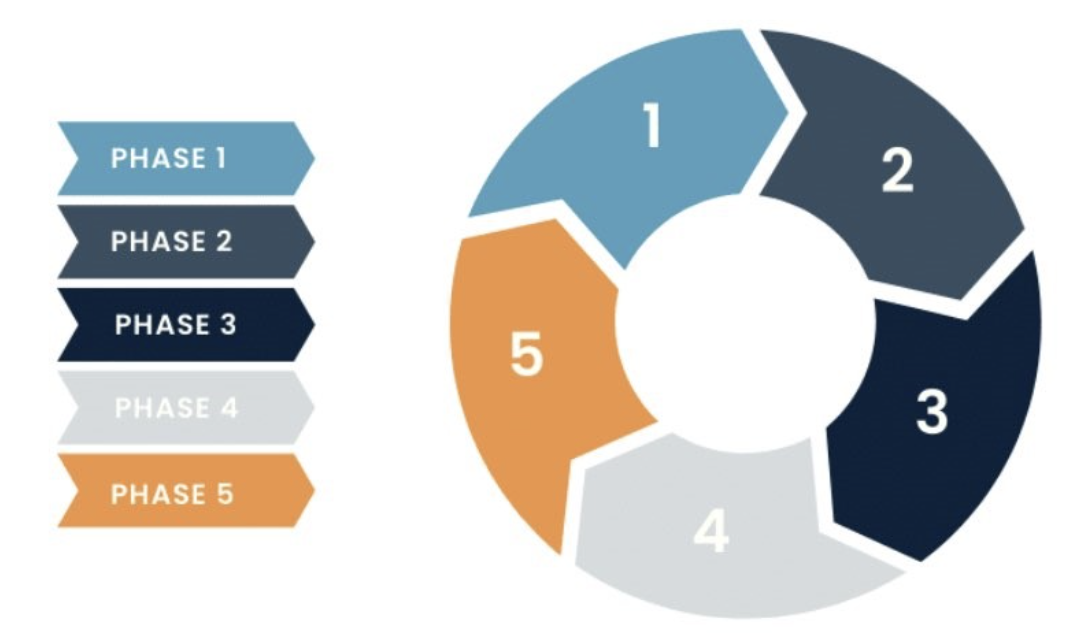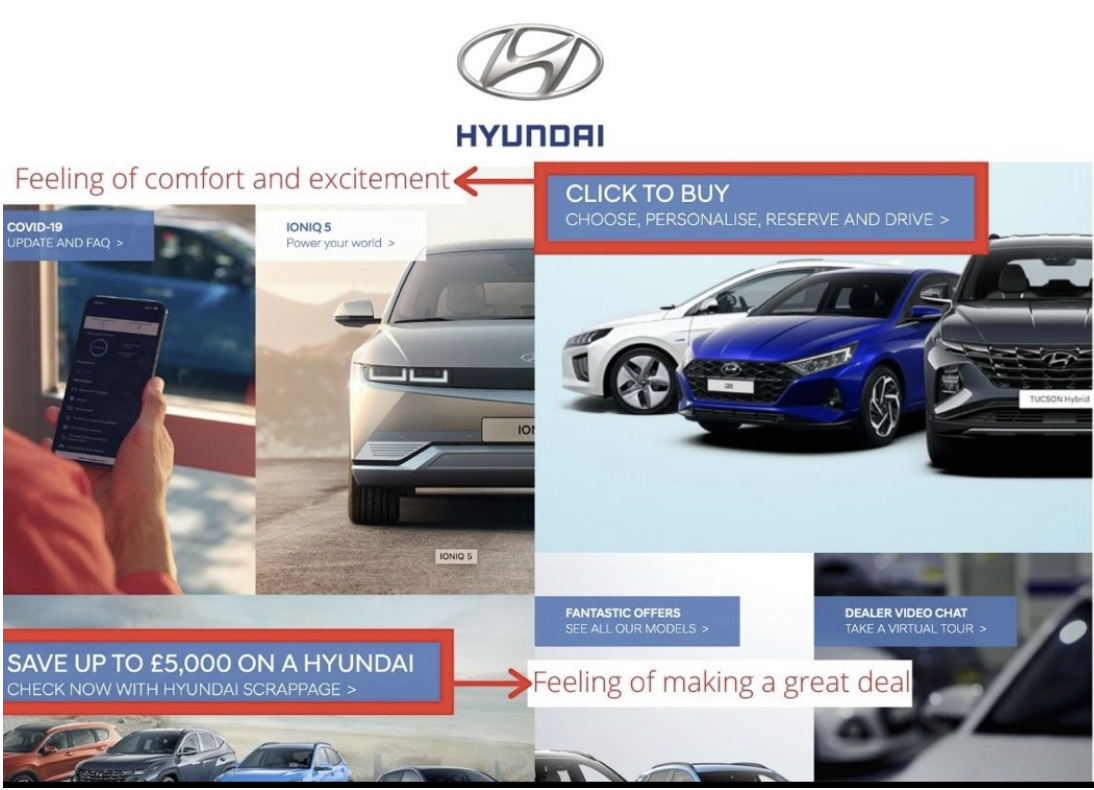With the rise of psychology in digital marketing, businesses are now exploring innovative ways to connect with their audiences on a deeper level.
This shift towards understanding the human mind and emotions, while creating unforgettable experiences, has become a game-changer.
In this article, we will dive into the world of psychology in digital marketing, exploring the current trends, the 5 stages of the digital marketing life cycle, and how neuroscience, along with emotional connections, can revolutionize your marketing strategy.
The Psychology Digital Marketing Revolution
Marketing has come a long way from its traditional roots. Today, it's more about understanding the human psyche and leveraging that knowledge to create compelling digital experiences that resonate with the audience.
The psychology of digital marketing is all about tapping into the emotional responses of your customers and prospects. This is where the journey begins for businesses looking to make a lasting impact.
Current Trends in Digital Marketing
To understand the psychology of digital marketing, it's essential to stay updated with the current trends in the industry. In the fast-paced world of digital marketing, keeping an eye on the latest developments is crucial.
Here are some of the trends shaping the landscape:
1. Personalization: Tailoring content to individual preferences is a must in today's digital marketing. Personalized emails, product recommendations, and targeted advertising are all part of creating a more personalized experience for your customers.
2. Video Marketing: Video content is taking over the digital space. Short, engaging videos have become a preferred method for delivering messages and connecting with the audience.
3. User-Generated Content: Encouraging users to create content related to your brand can generate trust and engagement. This is a powerful way to build a community around your products or services.
4. Artificial Intelligence (AI): AI is being used to analyze customer data, predict consumer behavior, and automate tasks such as chatbots for better customer service.
5. Interactive Content: Interactive content, such as quizzes, surveys, and polls, engages the audience and provides insights into their preferences and interests.

The 5 Stages of the Digital Marketing Life Cycle
To effectively implement psychology in digital marketing, it's crucial to understand the digital marketing life cycle. This cycle is a framework that encompasses the five key stages of digital marketing: Attract, Convert, Close, Delight, and Advocate. Let's explore each stage in detail.
1. Attract
In the "Attract" stage, the goal is to draw potential customers to your digital platforms. Understanding psychology helps in creating content that speaks to their needs, desires, and emotions.
For example, if you're in the fitness industry, sharing inspiring transformation stories and visually appealing workout routines can attract people looking for a healthier lifestyle.
2. Convert
Once you have attracted visitors to your website or social media, the next step is to convert them into leads or customers.
Psychology plays a vital role here by creating persuasive call-to-actions and reducing friction in the conversion process.
For instance, understanding the psychology behind trust can help you optimize your website's design and placement of trust-building elements, such as customer reviews and security badges.
3. Close
In the "Close" stage, you aim to turn leads into paying customers. Understanding the psychological triggers that lead to decision-making is essential.
Utilising techniques like scarcity and social proof can be incredibly effective. Sharing limited-time offers and showcasing customer success stories can push potential customers to make the final decision.
4. Delight
Customer retention and satisfaction are pivotal for long-term success. Knowing the psychology behind customer satisfaction enables businesses to create emotional connections.
Using techniques like surprise bonuses, personalized thank-you messages, and post-purchase follow-ups can delight customers and turn them into loyal advocates.
5. Advocate
Customers who are delighted with their experience are more likely to become advocates for your brand. Leverage psychology to encourage them to spread the word.
Providing shareable content and referral programs can turn your customers into enthusiastic brand promoters.
Create Emotional Connections: Psychology Digital Marketing
Now, let's delve into the game-changing aspects of neuroscience and emotional connections in psychology digital marketing. These elements have the potential to transform your marketing strategy and make it more effective and impactful.

The Neuroscience of Digital Marketing
Neuroscience, the scientific study of the nervous system and the brain, has a significant role to play in understanding consumer behavior. It offers insights into how the brain processes information, makes decisions, and experiences emotions.
By harnessing the power of neuroscience, businesses can gain a deeper understanding of their audience's thought processes.
One significant application of neuroscience in digital marketing is neuromarketing, a field that explores the brain's response to marketing stimuli.
Neuromarketing allows businesses to optimise their content and design to elicit the desired emotional responses from their audience.
Creating Emotional Experiences
Emotion plays a pivotal role in consumer decision-making. People are more likely to engage with, remember, and trust brands that evoke positive emotions.
By creating emotional experiences, businesses can establish a deeper connection with their audience.
Storytelling is a powerful tool in this regard. When you tell a compelling story that resonates with your audience's emotions, you create a lasting impact.
or instance, imagine a charity organization sharing the story of a child whose life was transformed by their support. This emotional storytelling can move people to take action, whether it's making a donation or spreading the word.
Moreover, businesses can tap into the psychology of color, music, and design to trigger specific emotional responses.
For instance, using warm colors like red and orange can evoke feelings of excitement and energy, while soothing blues and greens can create a sense of calm and trust.
The right choice of music can enhance the emotional impact of your video content.
By understanding the psychology of emotions, businesses can tailor their marketing efforts to create the desired feelings in their audience, whether it's joy, trust, excitement, or nostalgia.

SM Agency: The Solution for Psychology Digital Marketing
As you've seen, psychology in digital marketing, coupled with neuroscience and emotional connections, can be a game changer for your business. However, implementing these strategies effectively requires expertise and experience.
SM Agency is a full-service digital agency specializing in creating emotional experiences through marketing.
Their approach relies on the newest neuroscientific methodology and technology, which allows them to achieve a remarkable +97% precision in understanding audiences' emotions and a staggering +250% increase in campaign performance.
With a team of experienced professionals, SM Agency helps brands of all types connect with customers at a deeper level.
By utilising the principles of psychology in digital marketing and combining them with neuroscience and emotional connections, they ensure that your marketing campaigns leave a lasting impact.
Whether you want to attract, convert, close, delight, or advocate, SM Agency has the expertise to guide you through each stage of the digital marketing life cycle.
In conclusion, the psychology of digital marketing, backed by neuroscience and emotional connections, has ushered in a new era of marketing strategies.
Understanding the psychological aspects of consumer behaviour and creating emotional experiences is a game changer for any business.

